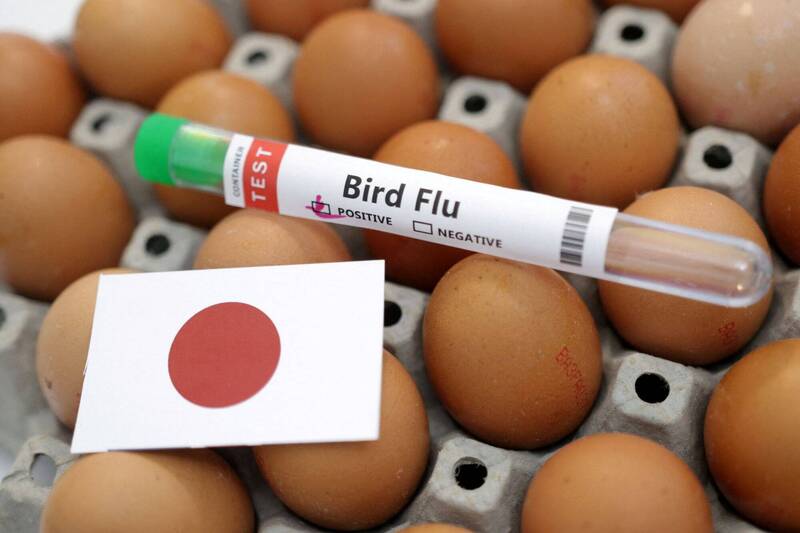The outbreak of bird flu in Japan and the rise in feed prices led to a shortage of eggs, and the wholesale price of eggs in Tokyo hit the highest level since 1986.
(Reuters)
〔Central News Agency〕The outbreak of bird flu in Japan and the rise in feed prices have led to a shortage of eggs and caused prices for popular restaurant items such as gyudon rice and mayonnaise, a representative Japanese condiment, to rise.
The wholesale price of eggs in Tokyo is the highest since 1986.
Nikkei Asia (Nikkei Asia) reported that the outbreak of bird flu in Japan at the end of last year and the Russian invasion of Ukraine caused feed prices to soar. Poultry farmers have already reduced the number of laying hens in response.
The increase in the number of chickens being culled has led to an unstable supply of eggs, causing wholesale egg prices to skyrocket.
Please read on...
Japan's Minister of Agriculture, Forestry and Fisheries Tetsuro Nomura said last week that since October last year, 25 of the country's 47 prefectures have had bird flu cases. As of the morning of February 17, a total of 14.78 million poultry had been culled.
According to data from JA. Z-Tamago, an egg merchant under the Japan National Agricultural Cooperative Federation, as of yesterday, the wholesale price of medium-sized eggs in Tokyo was 335 yen per kilogram (about NT$75), an increase of 81% over the same period last year, and also surpassed The average wholesale price in January was 280 yen, the highest since 1986.
Eggs and bean sprouts are usually the most stable food items in Japan, but the current situation has raised concerns among consumers and suppliers at a time when consumer prices have risen to a 40-year high.
Rising energy and food prices pushed up the annual growth rate of Japan's core consumer price index to 4% in December last year, a 41-year high.
Japan's Skylark Holdings earlier this month stopped selling some menu items that use eggs, such as fried rice at its Chinese restaurant chain and egg dishes at its steak chain.
Sukiya, one of Japan's largest beef rice bowl chains, started to increase the price of its signature beef bowl set with egg and miso soup by 10 yen yesterday, bringing the price to 540 yen. Other egg-based items in certain regional stores Also increase the price.
Gyudon rice is a common lunch of Japanese office workers and is very popular.
Shiqijia's parent company, catering company Zensho Holdings (Zensho Holdings), cited rising food and wage costs as the reason for the price increase.
Shigeya's competitors, Yoshinoya and Matsuya, also raised prices, but did not mention the lack of eggs.
At the same time, in response to the bird flu epidemic, food manufacturer Kewpie will increase the shipping price of its own mayonnaise by about 21% from April 1.
This condiment, like eggs, is regarded as the delicious soul of Japanese cuisine.
Seiichiro Samejima, chief analyst at Ichiyoshi Research Institute, a Japanese market research agency, believes that the price pressure will not end in the short term.
"It will take about six months to eradicate bird flu through culling," he said. "But the focus is on how fast food and other businesses that offer egg-containing products as part of their seasonal menu will respond in the future."
Samejima Seiichiro also said that the impact of this wave of egg shortages on popular dishes on restaurant menus may continue.
